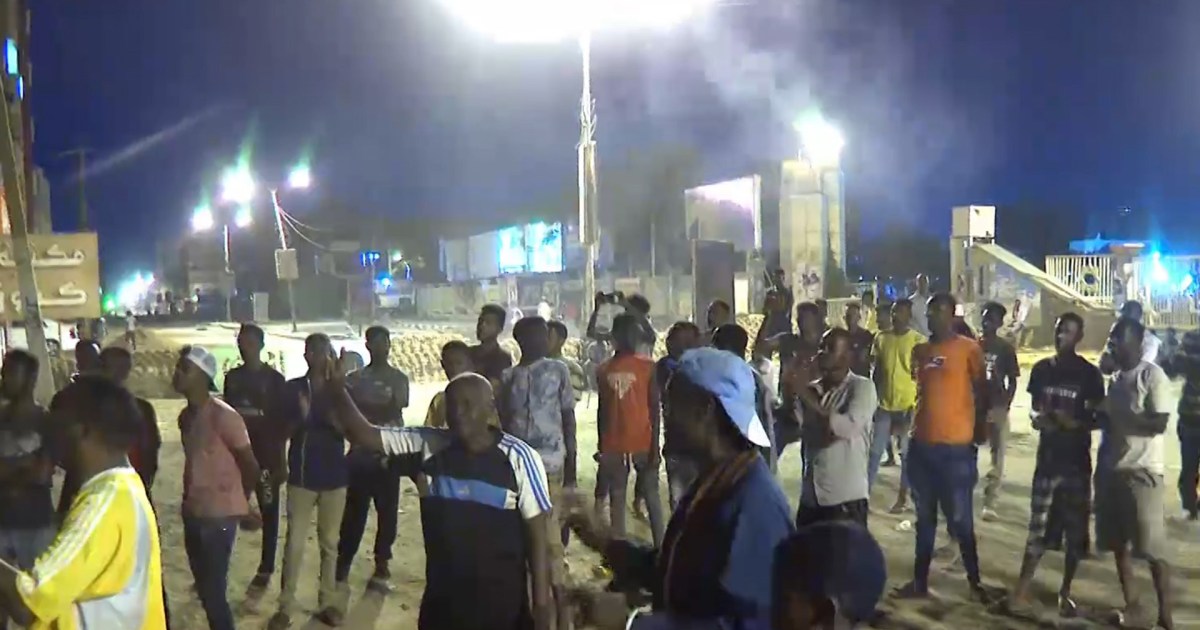US Secretary of State Anthony Blinken made a phone call with Sudanese Prime Minister Abdullah Hamdok, while the UN Security Council and the African Peace and Security Council failed to reach an agreement on the situation in Sudan.
The US State Department said that Minister Anthony Blinken spoke in a phone call with Sudanese Prime Minister Abdullah Hamdok, and welcomed his release, and renewed the demand for the release of the remaining detainees.
She added that Bliken expressed his deep concern about the continued seizure of power by the army, and reiterated the need for restraint and avoidance of violence in responding to the demonstrators.
For his part, US National Security Adviser Jake Sullivan said that his country is in close contact with regional leaders, including the Gulf states, in order to coordinate and send a clear message to the Sudanese army of the need to stop any violence against civilians, release detained politicians, and return to the democratic path.
perilous situation
At the European level, the German Foreign Ministry said in a statement that what it described as the military coup in Sudan is a catastrophic development that puts the country in a precarious situation.
The statement added that the measures announced by General Abdel-Fattah Al-Burhan make Sudan's democratic and peaceful future into question.
German Foreign Minister Heiko Maas said that General Abdel Fattah al-Burhan and his supporters should not be allowed to block the path to democracy.
The German Foreign Minister added that his country will continue to support the Sudanese people and Prime Minister Abdalla Hamdok.
For his part, the European Union's foreign and security policy chief, Josep Borrell, said that the European Union could suspend its financial assistance to Sudan after the coup, if the situation did not immediately return to what it was.
Borrell added that what happened was an attempt to undermine the transition towards democracy in Sudan, and that it was unacceptable.
There is no agreement in the Security Council
The UN Security Council concluded a closed-door consultation session on Tuesday on developments in Sudan without reaching an agreement on a unified position.
Dmitriy Polyansky, Russia's deputy representative to the Security Council, said the council should express its rejection of violence from all sides in Sudan.
Polyansky declined to describe what happened in Sudan as a coup, saying that the coup has a specific definition, and that such developments exist in many countries and in many parts of the world and are not described as a coup, and it is up to the Sudanese to decide whether it is a coup or not.
Split in the African Peace Council
A session of the African Peace and Security Council on Sudan was adjourned without reaching an agreement, and it was decided that it will be completed later this afternoon, Wednesday.
Sources told Al Jazeera that the session witnessed a difference in attitudes between supporters of suspending Sudan's membership, and those who demanded more consultation and communication with the new authority in Khartoum.
The first party demands the suspension of membership because it considers what happened in Sudan to be a coup that violates the charters of the African Union, and therefore membership must be suspended immediately, sanctions must be imposed and the perpetrators not dealt with, and the international community is called to isolate the regime in Sudan.
As for the second party, it is necessary to communicate, dialogue and listen to the Sudanese side before taking any decision.
Epidemic of coups
The Secretary-General of the United Nations, Antonio Guterres, had called on the major international powers to show unity in deterring what he described as the epidemic of coups occurring in Africa and elsewhere around the world.
We are now witnessing a multiplication of coups, we have strong geopolitical divisions, the Security Council is facing many difficulties in taking strong measures, and there is the impact of the problems of Covid-19 and the difficulties that many countries are facing in economic and social terms.
He considered that these three factors create an environment in which some military leaders feel that they enjoy complete impunity and that they can do whatever they want.
He called on the major powers in particular to unite in order to ensure the existence of effective deterrence with regard to the epidemic of coups, pointing out that this effective deterrence does not currently exist, as is evident with regard to Myanmar and many African sites.
In turn, the Geneva Council for Rights and Freedoms said that it is following with great concern the developments of the situation in Sudan after the army seized power, declared a state of emergency and arrested a number of civilians.
The council said in a statement that the security forces opened fire on the demonstrators, killing and wounding dozens.
He added that he expresses deep concern about human rights due to the excessive use of force against demonstrators, killings, indiscriminate arrests and attacks on freedom of expression.
The Sudanese army chief, Abdel Fattah Al-Burhan, defended the armed forces' control of power, saying that it overthrew Hamdok's government to avoid a civil war, while protests took place in the streets to condemn the army's move after bloody clashes.

